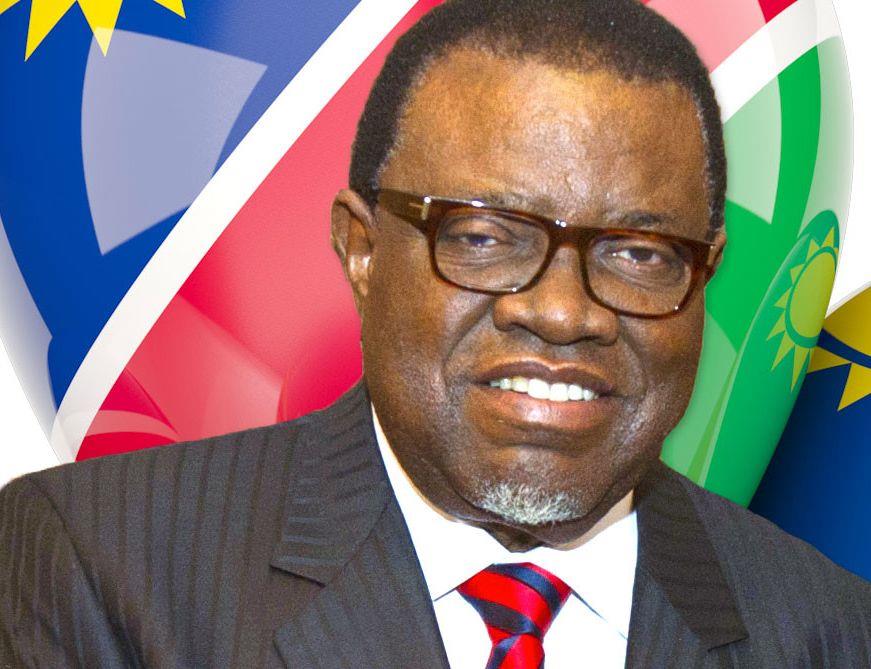Namibian freedom still intact
Land reform remains a contentious issue in Namibia, as well as the marginalisation of the San.
Namibia was ranked 81st among 195 countries or territories for freedom in 2018 and was deemed “free” according to a report issued recently by Freedom House.
In its Freedom in the World 2019 report, titled 'Democracy in Retreat', it said global freedom declined for the 13th consecutive year in 2018.
Among the 195 countries or territories surveyed, 86 were rated as “free,” 59 “partly free,” and 50 “not free,” according to the report.
Namibia scored a total of 75 out of 100, while its freedom rating was 2.5 out of 7, its political rating 3 out of 7 and the country also scored 2 out of 7 for civil liberties.
This is a slight drop in comparison with the scores that Namibia received previous years. Namibia received a total score of 77 out of 100 last year, maintaining the same score since 2015.
Namibia was ranked among the top ten countries in sub-Saharan Africa, with only Cape Verde (90) Mauritius (89) Sao Tome and Principe (83), Ghana (83), Benin (79) and South Africa (79) scoring higher. “Namibia is a stable multiparty democracy, though the ruling party, Swapo, that has overwhelmingly won every election since independence. Protections for civil liberties are generally robust.
“Minority ethnic groups claim that the government favours the majority Ovambo, which dominates Swapo, in allocating funding and services, and the nomadic San people suffer from poverty and marginalisation. “Other human rights concerns include the criminalisation of same-sex sexual relations under colonial-era laws and discrimination against women under customary law and other traditional societal practices,” the report highlighted last year.
It said the issue of land reform remained a contentious issue with a small white minority that owns just under half of Namibia's arable land, and redistribution has been slow and fraught with disagreement.
A new overview of Namibia in this year's report is not yet available. Top of the freedom list with a maximum of 100 points are Finland, Norway and Sweden, followed by the Netherlands (99), Canada (99), New Zealand (98), Uruguay (98), Australia (98) and Luxembourg (98).
The countries or territories with the worst freedom rating were Syria, which had a score of 0, Tibet (1), South Sudan (2), Eritrea (2), Turkmenistan (2) and North Korea (3).
“It is the 13th consecutive year of decline in global freedom. The reversal has spanned a variety of countries in every region, from long-standing democracies like the United States to consolidated authoritarian regimes like China and Russia. The overall losses are still shallow compared with the gains of the late 20th century, but the pattern is consistent and ominous.
Democracy is in retreat,” says the report. According to the report freedom of expression has come under sustained attack, through both assaults on the press and encroachments on the speech rights of ordinary citizens.
In its Freedom in the World 2019 report, titled 'Democracy in Retreat', it said global freedom declined for the 13th consecutive year in 2018.
Among the 195 countries or territories surveyed, 86 were rated as “free,” 59 “partly free,” and 50 “not free,” according to the report.
Namibia scored a total of 75 out of 100, while its freedom rating was 2.5 out of 7, its political rating 3 out of 7 and the country also scored 2 out of 7 for civil liberties.
This is a slight drop in comparison with the scores that Namibia received previous years. Namibia received a total score of 77 out of 100 last year, maintaining the same score since 2015.
Namibia was ranked among the top ten countries in sub-Saharan Africa, with only Cape Verde (90) Mauritius (89) Sao Tome and Principe (83), Ghana (83), Benin (79) and South Africa (79) scoring higher. “Namibia is a stable multiparty democracy, though the ruling party, Swapo, that has overwhelmingly won every election since independence. Protections for civil liberties are generally robust.
“Minority ethnic groups claim that the government favours the majority Ovambo, which dominates Swapo, in allocating funding and services, and the nomadic San people suffer from poverty and marginalisation. “Other human rights concerns include the criminalisation of same-sex sexual relations under colonial-era laws and discrimination against women under customary law and other traditional societal practices,” the report highlighted last year.
It said the issue of land reform remained a contentious issue with a small white minority that owns just under half of Namibia's arable land, and redistribution has been slow and fraught with disagreement.
A new overview of Namibia in this year's report is not yet available. Top of the freedom list with a maximum of 100 points are Finland, Norway and Sweden, followed by the Netherlands (99), Canada (99), New Zealand (98), Uruguay (98), Australia (98) and Luxembourg (98).
The countries or territories with the worst freedom rating were Syria, which had a score of 0, Tibet (1), South Sudan (2), Eritrea (2), Turkmenistan (2) and North Korea (3).
“It is the 13th consecutive year of decline in global freedom. The reversal has spanned a variety of countries in every region, from long-standing democracies like the United States to consolidated authoritarian regimes like China and Russia. The overall losses are still shallow compared with the gains of the late 20th century, but the pattern is consistent and ominous.
Democracy is in retreat,” says the report. According to the report freedom of expression has come under sustained attack, through both assaults on the press and encroachments on the speech rights of ordinary citizens.





Comments
Namibian Sun
No comments have been left on this article